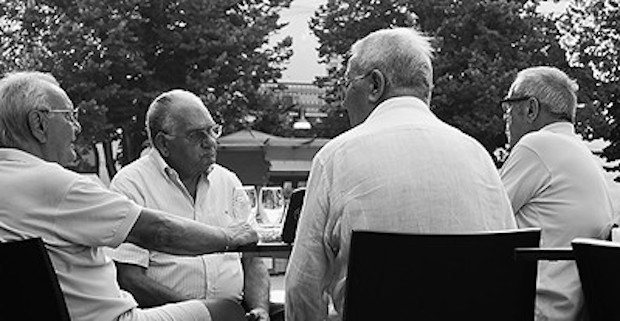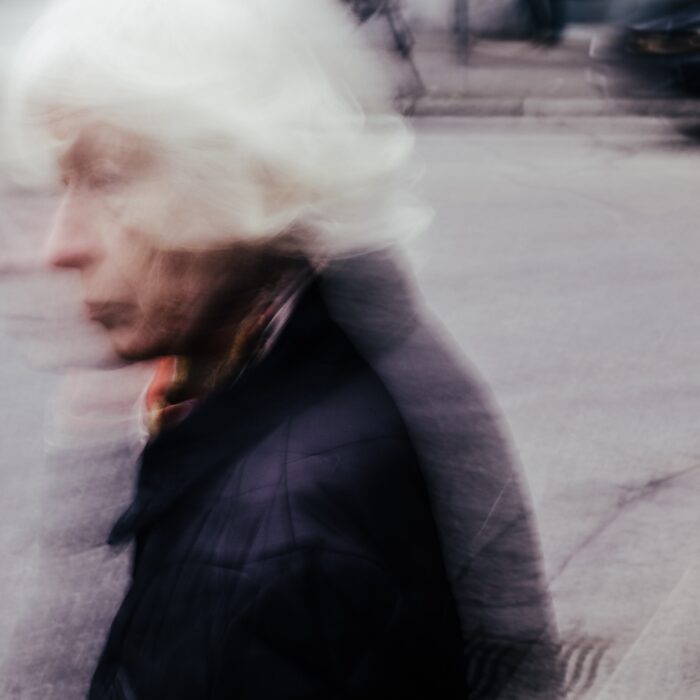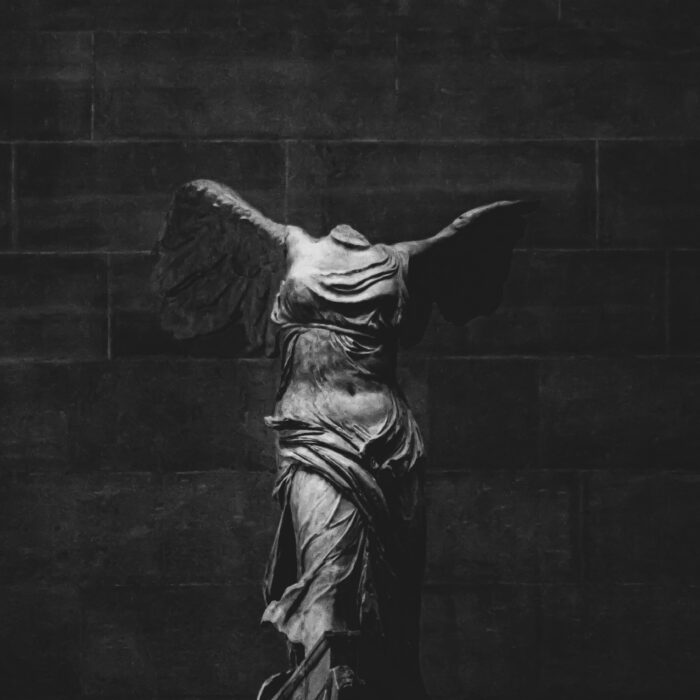You have no items in your cart. Want to get some nice things?
Go shopping
Out on the front patio of the old coffee shop — they meet here every day, discussing their backs and their wives and the minutiae of their lives. One older man, Jim, has a poodle the color of wet cement. It sits on his lap. Another older man, the one who hates poodles, sits on the other side of the table. Just in case this superficially passive beast begins to foam at the mouth. There are stories. The man who hates poodles has heard them all. That lady in Tempe? The one whose dogs ate her when she died? Poodles. All of them. And he already knows the cement colored dog doesn’t like him. The man’s name is Edgar. He wears aviator sunglasses — to avoid eye contact with the poodle.
Seated next to Edgar is a man who always brings war into their conversations. His name is George. As far as George is concerned, a war parable is as good a lesson as he knows for life’s most important questions and predicaments. Your back hurts? George can tell you a great story about swimming to a deserted island after a torpedo strike in the Korean War. George pulled an unconscious captain ashore, gave him mouth-to-mouth. They gave George a medal. But his back never felt the same. He still takes torrid, steaming, blistering showers, as hot as he can stand, every morning. Which helps. He carries a tube of toothpaste-looking minty stuff, and he asks his friends to rub a bit on his back sometimes. Today, George’s bad back reminds him of a story his son-in-law told him about the infamous suicide showers in Vietnam. George also has a theory about bathing during the Civil War. Apparently, a preponderance of Northern body odor disoriented the Southern troops. It was due, George says, to diets heavy in garlic, for which Northern culinary fare—even the kind found in a Union mess kit—was already becoming well-known. More than anything else, George loves connecting things back to the Civil War. He says the Civil War’s the fulcrum of American consciousness. But Edgar and Jim, the man with the poodle, are sick of hearing about it.
Seated next to George is Garrett. Garrett never says very much. Until he does. Then, he never shuts up. Garrett interrupted Edgar, who was interrupting George. Garrett suddenly remembered something on the radio yesterday. Something about their brand-new President and the socialist police state falling into place around his slender shoulders, like a blood-red cashmere cloak. Apparently, the new President’s going to let his army occupy the houses of the people who didn’t vote for him. After he takes away everybody’s guns, of course. Jim doesn’t have a weapon. He doesn’t care. If Garrett told Jim the new President was going to take his poodle Jessi away, he might listen. Jim softly strokes the furry curls on Jessi’s head.
Remembering suddenly, Garrett puts his coffee cup down and he lowers his gravelly voice. He tells his friends this country is on a frighteningly precarious path. He says he just heard, not ten minutes ago, on AM talk radio, that the new President’s presently crafting regulations that will make it illegal to _______ your _______.
Jim is horrified by this news. Strangely enough, Edgar is too.
This reminds George of a great story and he’s just about to tell it, until Jessi bites his finger — the same finger he’s excitedly pointing at Jim.
Jason Thornberry
Neurodivergent Seattle writer Jason M. Thornberry’s work appears in The Stranger, Route 7 Review, Entropy, Adirondack Review, Praxis, Hash Journal, In Parentheses, and elsewhere. His work examines family, disability, and social justice. An MFA candidate at Chapman University, Jason taught creative writing at Seattle Pacific University. He reads poetry for TAB Journal.
- Web |
- More Posts(1)





So now I know what those fellows talk about. I see them in the park everyday. Good story. Read it as I waited for the bus.